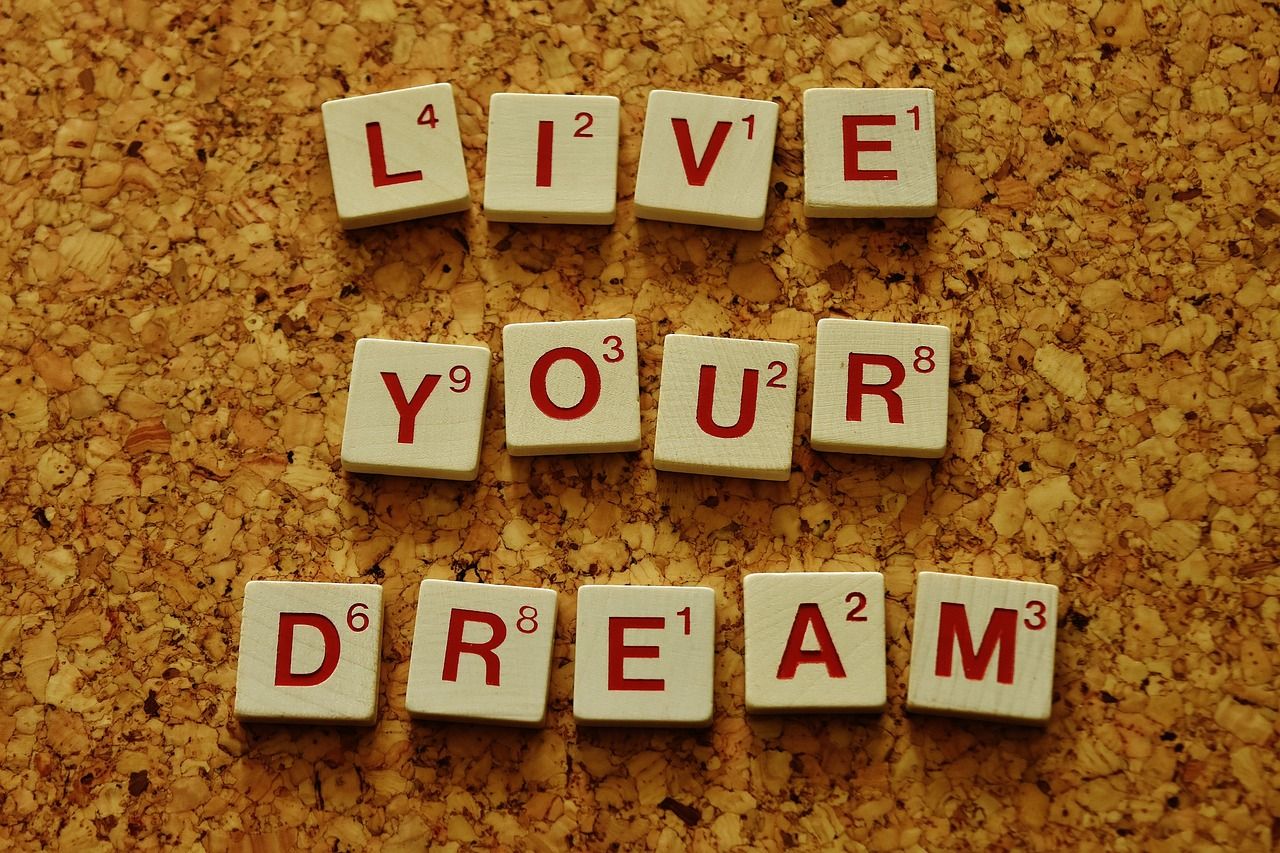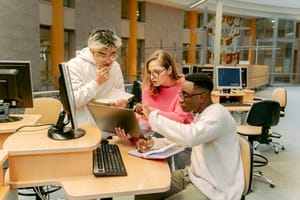I was in my first year of graduate school at Purdue, running an experiment in my rotation lab at 1 am in the night. My rotation adviser was next to me, analyzing crystallography data while it was being collected. I asked her the reason for staying late and she asked me about coomassie stains on my sweater. I said, “my curiosity for science is worth more than any sweater.” This shared moment showed me the nature of our profession, ignited the passion for science in me and convinced me that I wanted to pursue a professorship in the future.
I next went through rigorous scientific training in membrane protein biology with a number of mentors to shape myself as a faculty. Then, at the end of my postdoctoral training, COVID hit all of us, and I found myself wondering: Can I be a successful mentor ? Can I do the job my mentors are doing? How did my extensive scientific training in experimental design and data analysis prepare me to manage a research team? Can I use “takeaways” or “Do's and Don’ts” from my mentoring experiences during scientific training and go for the faculty job ? As a scientist, I thought of answering this question by running an experiment on and by myself; I was going to serve as an independent mentor to students and train them in performing a meta-analysis study.
Setting up My "Mentoring Experiment"
However, as a postdoctoral fellow, I was not allowed to recruit students directly from a graduate program. I inquired with the program coordinator of a CCSF (City College of San Francisco) - UCSF internship program about any of the students interested in writing a review article. Graciously, three students expressed their interest in working with me. I did not ask for their curriculum vitae, their educational background, their nationalities, gender or socioeconomic background, to avoid any unconscious bias in my mind. At this juncture, I recruited students only based on their interest to do science and the fearless experiment of “becoming a successful mentor” initiated in June 2020.
I decided to meet with the students weekly on Zoom to discuss our research project due to reasons like the COVID pandemic, the unavailability of lab space or funding, and the nature of the project. I shared the layout of our collaborative project with students via google docs and sheets. The study took the form of research-based coursework from June to December. During this time, all of us - including myself as I believe that mentors should participate in real data collection - were assigned "homework" on a weekly basis. I really emphasized a collaborative environment and team building. Students helped each other by answering any questions within their team meetings without me being present, which helped with team building. I was also vigilant of students attending meetings with me. We had set an internal deadline to complete data collection was by October 2020. To avoid having to pressure anyone to work harder than they could, we recruited an additional student to the project. This brought about an additional challenge to bring everyone on the same page in the project, while also making sure that the learning materials were not too repetitive for the students who were already working on the project. I gave an overview and highlighted some key points to her and team meetings made her feel well included in the team. Finally, students analyzed and interpreted all collected data and we wrote up our findings in the form of an article, “Meta-analysis of the expansion in the field of structural biology of ABC transporters” by Dec 2020.
All throughout the course, students' opinions were valued for any decision made to make them feel included. Polite conversations during these meetings helped them to understand the project and data-collection process. Questions were welcomed in person or in email and I tried to answer as many as I could. However, sometimes I did not know the answers myself, so I took time to think about definite answers. I was also open to accommodate life situations such as time limitations or the impact of noise due to construction work in their surroundings, which could hamper their progress in the study. And I kept patience with their contributions.
The work done in this study was a result of the students' inner or self motivation and so, some students were able to contribute more than others. When I first noticed unequal contributions from students, it made me worry about their understanding regarding the learning material, but their feedback helped me learn that unequal contributions were due to differences in availability of time for this study in their schedules. Following transparency and open access ideals, we scheduled a meeting to discuss authorship for the research paper by listing everyone's contributions. I made it clear that everyone was allowed to oppose this decision if they disagreed, so we all agreed on it without any pressure. I felt so happy to grow as a mentor and contribute to their learning and understanding towards research. This end moment was fulfilling and rewarding, and a great experience for my trial to be a good mentor to students. I felt this experience was the best of a mentor - mentee relationship and, most importantly, all of us enjoyed it. I also received follow-up thank you letters.
The struggles of getting our research work published
As we ended our weekly meetings in Dec 2020, I promised the students to get this paper published to get their hard work, passion, intellect, team work and contributions recognized. I recollected and updated the data, validated the study and reshaped it for the submission of the manuscript in a journal as a corresponding author.
I quickly found out that publishing this review article, which was not an invited submission, would be no small feet. Indeed, various journals simply rejected it at first. Arranging article processing fees for journals was another challenge which impeded the submission of this article in many journals and another helpful colleague offered their support where needed. After these trials, I availed an opportunity posted on social media for an open review workshop in the 2nd International BioDesign Research Conference, which was organized by BioDesign Research Journal in partnership with Science (AAAS - American Association for the advancement of Science) in Dec 2021. I presented this article, received important and useful feedback for improvement, revised it and submitted the article to the same journal without the need of publication fees. The review on paper was a mix of positive and negative comments, some unclear statements, and some helpful suggestions. Because all of the original authors had since graduated from the program and got busy with their jobs, I included my sister, Teena Bajaj, a graduate student at UC Berkeley, in this study. While I was working on responses to the reviewer, she was working on collecting more data and both of us worked on updating and validating graphs together. Tae Seok Moon also provided feedback on my response to reviewers. I then updated all students about all these changes in the content and authorship to maintain our honest relationship. Finally, I resubmitted the paper on May 15, 2022 after approval from all authors and graciously, the paper was accepted on May 31, 2022. This was a big relief from the promise I made to my students, the responsibility of crediting these students and their trust in me. After rounds of proofreading, the paper is finally published in an open access journal - BioDesign Research (https://doi.org/10.34133/2022/9806979).
Gratitude As a Power Catalyst for Success.
I am incredibly happy, and proud, that my mentoring experiment turned into a success, and that I can tell myself: "I think I can be a successful mentor". I want to thank and congratulate all my mentors who invested in me and continued to coach and grow me for all these years. I also thank my family (parents and sisters), who supported me with food, living space, internet, electricity and kept my morale high to deal with my unemployment during the publication phase of this study (Jan 2021 - Sep 2022). And I also thank the almighty God for this thought process and energy to work out all these challenges.
This experience encourages me to take on challenges for new studies, which could combine experimental and computational work, and would require me to arrange resources like lab space, funding etc., and I am happy to take this challenge and take your support as well.
It is time for me to start shaping the next generation of scientists.
Cover image credit: Image by Alexa from Pixabay
About the author:
Ruchika Bajaj is a membrane protein biologist. She is interested in understanding structure-functional relationships in membrane proteins and their interactions in the context of physiological processes and diseases. Connect with Ruchika on Twitter.
About ecrLife:
We welcome comments, questions and feedback. Please contact us at ecrlife [dot] editors [at] gmail [dot] com.
Would you like to share your own story, insight or opinion? Pitch us here.
Follow us on Twitter or LinkedIn to stay up to speed with our latest news and blog post releases.







